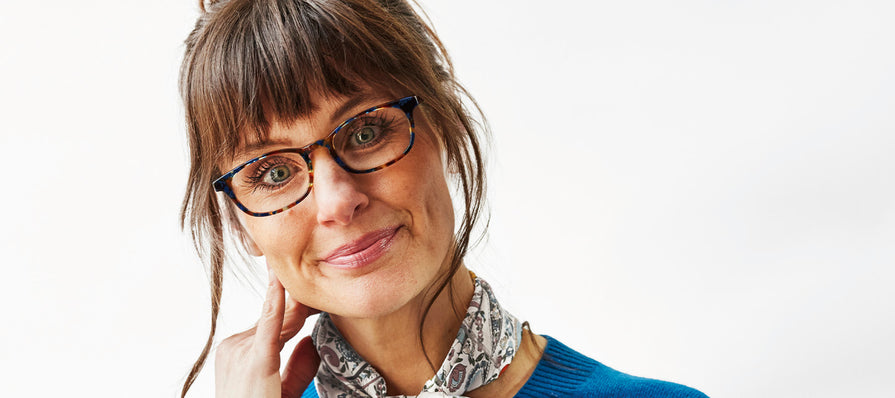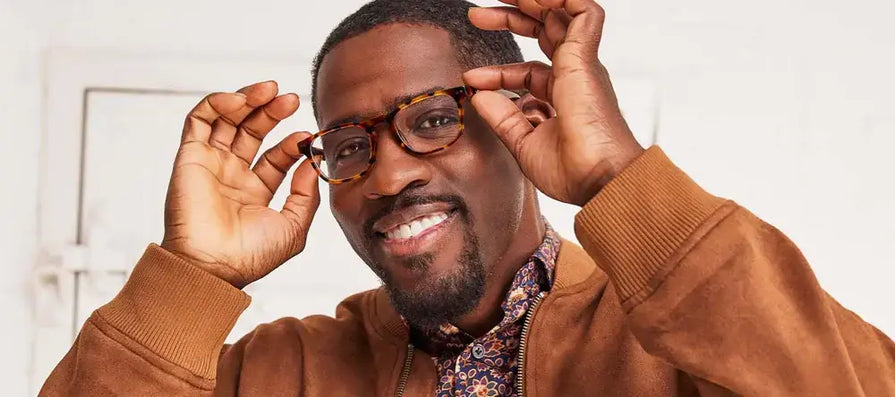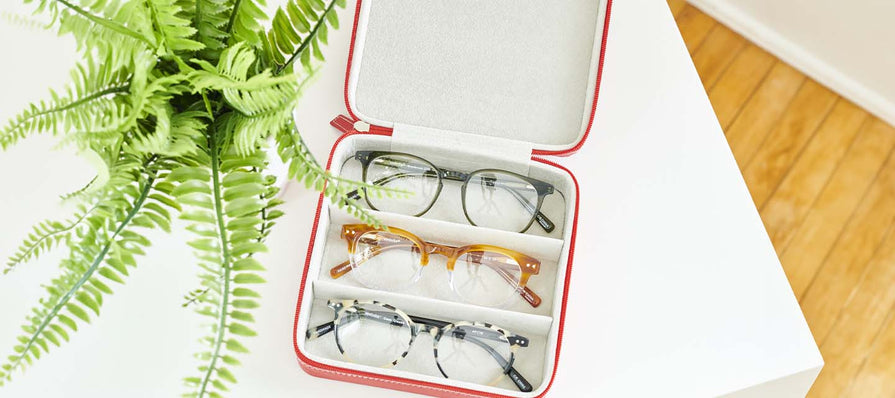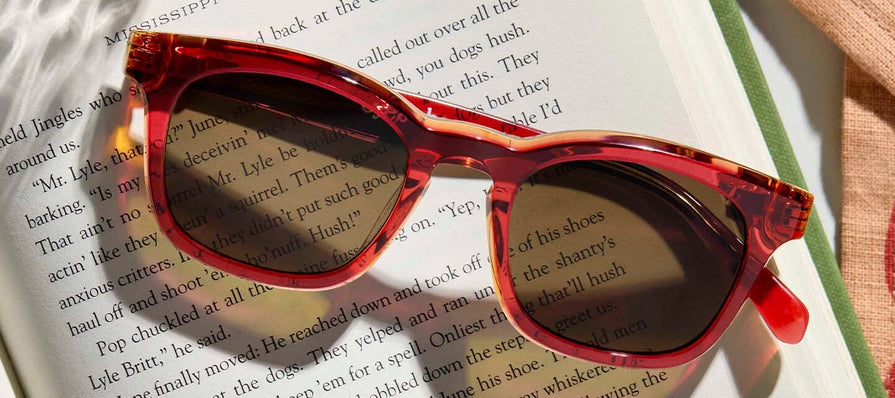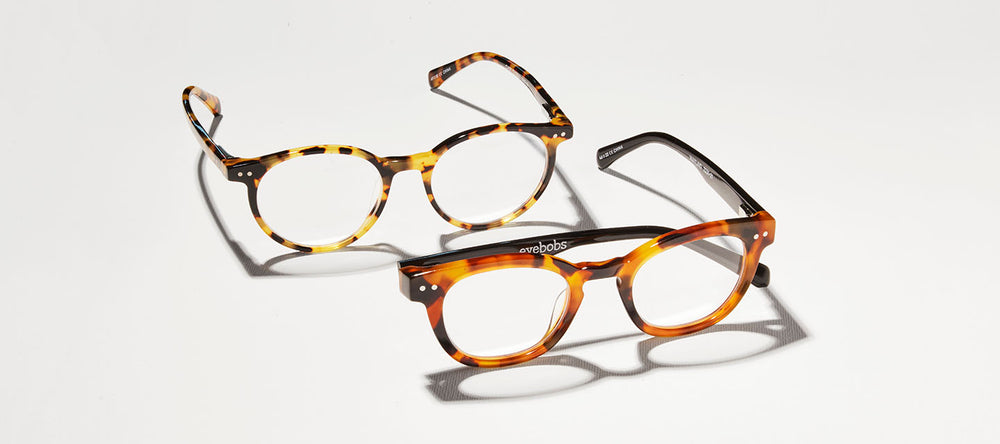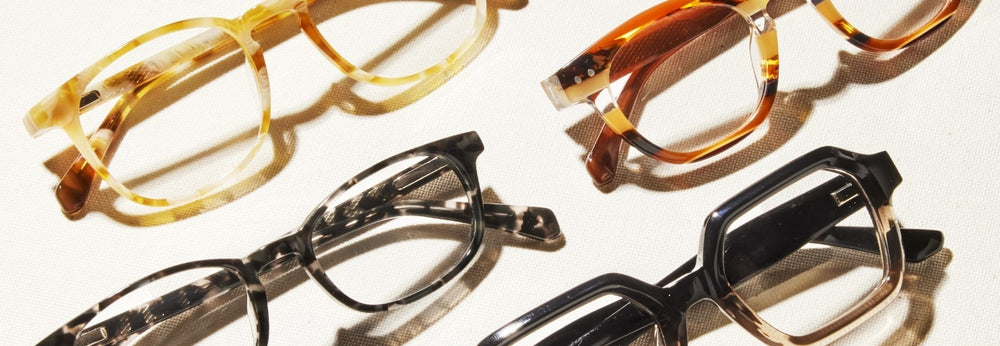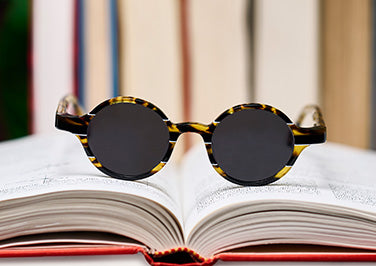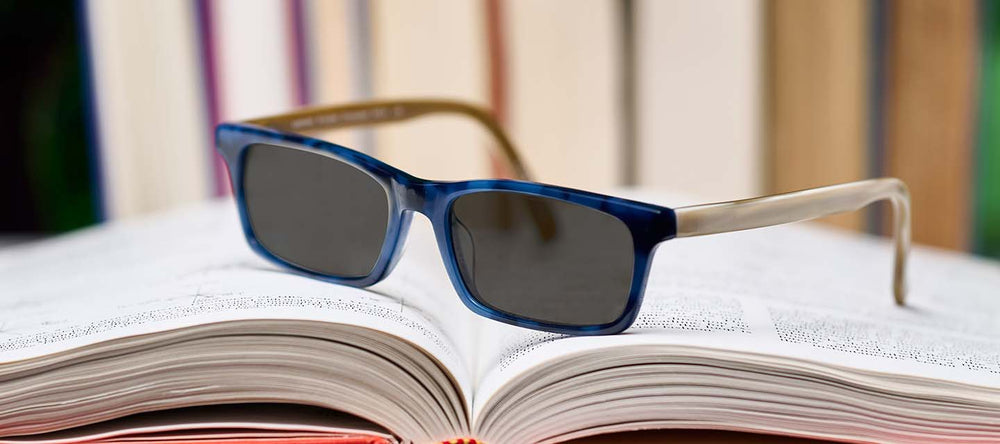Struggling to decide between contacts and glasses? Whether you’re a seasoned glasses-wearer contemplating the switch to contacts or a curious first-timer, your eyesight is safe with us. In this guide, we’ll delve into the pros and cons of both options to help you decide whether contacts or glasses are a better fit for both your lifestyle and your personal brand of flair.
Struggling to decide between contacts and glasses? Whether you’re a seasoned glasses-wearer contemplating the switch to contacts or a curious first-timer, your eyesight is safe with us. In this guide, we’ll delve into the pros and cons of both options to help you decide whether contacts or glasses are a better fit for both your lifestyle and your personal brand of flair.
The Pros and Cons of Contacts
The Pros and Cons of Contacts
For those who lead an active lifestyle, contacts can offer a sense of security and freedom that good ol’ sports goggles will have a tough time matching. They don’t interfere with physical activities or sports: you won’t have anything in the way of your peripheral vision, and won’t have to worry about your glasses falling off right before you sink a three-pointer.
That’s not to say contacts don’t come with their own set of challenges, though. Some people take issue with constantly sticking their fingers in their eyeballs, and we can respect that. Besides the admittedly off-putting insertion process, contacts also demand meticulous care with required cleaning rituals and specific storage instructions. Contacts also come with both initial and ongoing expenses – be prepared to shell out for solutions, cases, eyedrops, and the lenses themselves.
In other words, contacts are pretty high maintenance, but scores of people still find them well worth the extra effort and cost. As with most things, it all comes down to what you want, dear reader.
Are Contacts Better Than Glasses?
Are Contacts Better Than Glasses?
While some may prefer the feeling of contacts to the weight of frames on their faces, contacts are a significantly riskier business. Some people’s eyes simply won’t tolerate them, leading to not-so-desirable reactions like dry eyes. And even the hardiest of eyeballs aren’t safe from the risk of eye infection. If you aren’t a frequent hand-washer, you should probably forego the contacts.
Okay, now back to vanity: we may be slightly biased here, but style is still a factor. Glasses double as fashion accessories, with the unique ability to crank a basic look up to 100. They offer a style statement that contacts, in their invisibility, just can’t compete with.
How Do Contacts Work?
How Do Contacts Work?
Now, allow us to give you a sneak preview of the spiel your optometrist will give when you ask about contacts. They come in a few different forms, including soft and rigid lenses. Those with astigmatism may benefit from toric lenses, and there are also multi-focal lenses targeted towards those with presbyopia. Another consideration is the length of time they’re meant to be worn: you can get daily contacts designed to be worn for twelve hours, or monthly ones you store and reuse.
Once your eye doctor walks you through the different types of contact lenses, they’ll give you an Armani-worthy fitting to ensure a precise prescription and a comfortable fit. You’ll then get a tutorial on maintenance and cleaning: proper hand-washing before and after inserting your contact lenses is paramount, and it’s just as important to adhere to the wearing schedule your eye care professional recommends.
As advanced as contacts have become, there are still risks involved with inserting any foreign object into your eyeball. Contacts give you the power to run, jump, hang-glide, and scale cliff faces unhindered by your glasses, but remember: with great power comes a great many responsibilities.
Lifestyle and Activities
Lifestyle and Activities
All of us lead very different lives, and you’ll want to choose a method of vision correction that aligns with yours. Those who live for their after-work softball league will most likely want contacts to step up to the plate. You’ll be able to actually use your peripheral vision for important things like spotting ground balls and giving the opposing team the side eye, and you’ll never again miss a pop-up due to an untimely adjustment of your frames. Softball specifics aside, those who lead physically active lifestyles – whether that’s hitting the breaks, hiking the John Muir, or head-banging at Red Rocks – will likely find contacts useful.
If you frequently find yourself duking it out with dust or pollen allergies or happen to live in a particularly gritty or humid environment, contacts can act as built-in eye shields. The upside is that you won’t need to clean your glasses off every five seconds to see properly; the downside is that sand-in-your-eye feeling that happens when your contact meets with a speck of dust.
Occupational considerations bring another twist: are you frequently donning safety goggles? Contacts may be the way to go. Staring at a screen for hours on end? Glasses, especially ones with a blue light coating, may be a wiser choice. Find yourself frequenting planes and trains, whether for business or pleasure? Keep in mind that contacts are a literal pain in the eye to travel with, and if you doze off whilst wearing them, prepare to awaken with your eyeballs feeling drier than the Sahara.
Eye Health and Safety
Eye Health and Safety
At the end of the day, our numero uno goal – and yours too, hopefully – is ensuring that the windows to your soul stay sparkling. Glasses are certainly the safer choice, so those whose lifestyles don’t necessitate constant contact use may want to consider taking frequent breaks from contacts, at the very least. They make sure your eyes stay healthy and stable, and offer a far reduced risk of eye infection. Some even offer UV protection, eliminating the need for additional sunglasses.
Contacts, on the other hand, are less cumbersome on your face. You’ll never need to worry about them breaking – just falling out of your eye from time to time, as any contact wearer knows well. If you decide to give them a go, you’ll want to be extra-careful to get frequent and regular eye exams, which can help monitor eye health. Even if you don’t wear contacts, this still applies: it’ll ensure your prescription stays up-to-date, and that your optometrist stays up-to-date on all the gossip about the other ladies on your cul-de-sac.
You’ve Picked Our Brains. Now, Pick A Frame.
You’ve Picked Our Brains. Now, Pick A Frame.
In the oh-so-debatable dilemma between contacts and glasses, there’s no one-size-fits-all answer. Contacts offer freedom and convenience to some, but glasses contribute to stable eye health and statement-making style. Whatever your priorities and preferences, crystal-clear vision and ship-shape eyes are key. As you navigate our optical oasis, remember: it’s not just about seeing well, but about seeing yourself as you really are – and what a spectacular sight that is.
Not sure where to start? We’d always bet on our best-sellers.

